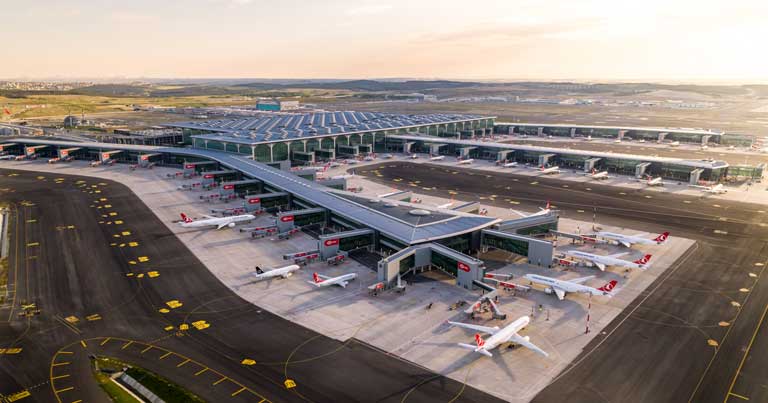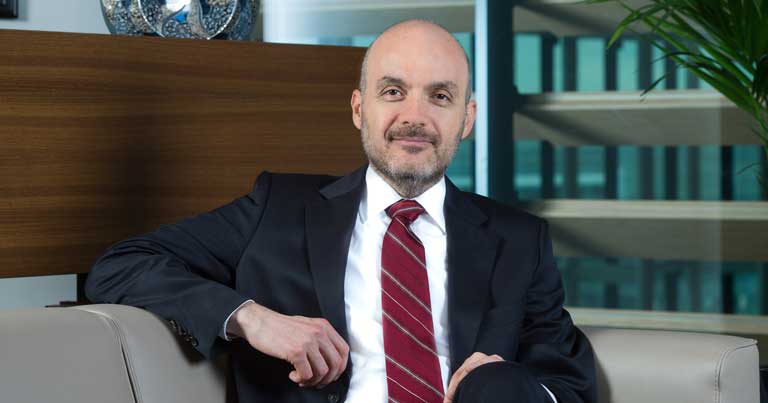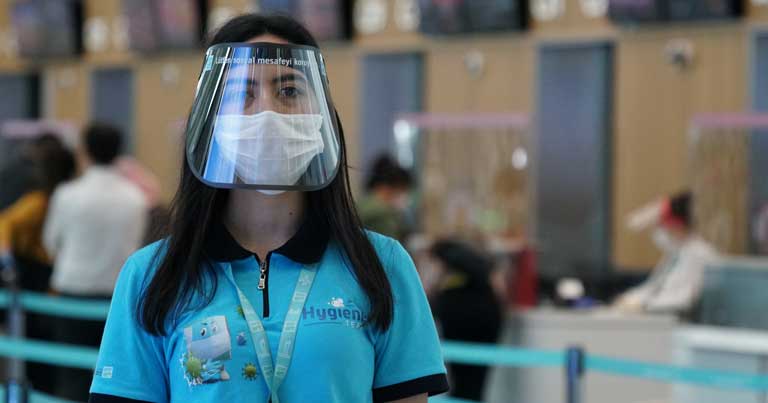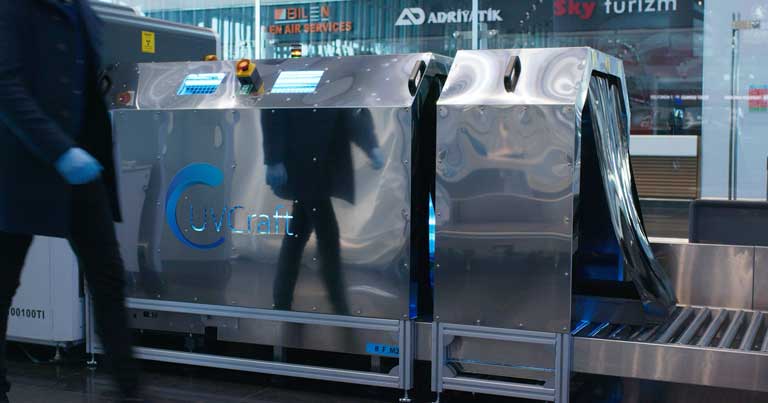
On 6 April 2020, Istanbul Airport marked one year since the “Great Move”. In its first full year, the airport has hosted 74 airlines and welcomed more than 64 million passengers.
“We are most proud of having built the world’s biggest airport in a record time of just 42 months,” says Kadri Samsunlu, Chief Executive Officer and General Manager, iGA Airport Operation. “We are also very proud of the unprecedented airport transfer process in April 2019, when Atatürk Airport was closed and materials and equipment weighing 47,300 tonnes were moved overnight to Istanbul Airport seamlessly and without any disruption for passengers.”
In June 2020, Istanbul Airport inaugurated its third independent runway, further strengthening its status as an international hub. It is the airport’s fifth fully operational runway and increases airside capacity by 50%. “It also makes Istanbul Airport the first in Turkey, and only the second in Europe, to operate three independent parallel runways,” Samsunlu explains. “Along with the new runway, the second ‘End-Around Taxiway’ to reduce congestion when air traffic is high will also enter service. The airport will be able to accommodate around 2,800 movements each day.”
A healthy and safe travel experience

Similar to other airports around the world, Istanbul Airport suspended scheduled passenger flights due to the COVID-19 outbreak. It used the shutdown to undertake regular maintenance and repair works. Domestic services have since resumed at an ever-increasing frequency from 1 June, while a gradual resumption of international flights to 40 countries began on 10 June.
“Our first priority is to offer passengers a healthy and safe travel experience,” Samsunlu emphasises. “First and foremost, only passengers with a flight, and only working personnel, will be granted access to the airport. We have abundant space to maintain social distance in all areas. By virtue of this advantage, we describe our terminal as having the ‘highest social distance’.”

A dedicated İGA Hygiene Team has been formed, which ensures compliance with COVID-19-related measures. Passengers are required to wear a face mask at all times, are instructed to walk over a special sanitiser mat at all terminal access points, and baggage is taken inside after disinfection. Trays at the security checkpoints are regularly disinfected, while plans are in place to introduce additional special sanitising systems for tray cleaning.
“All passengers will be screened by thermal cameras and have a body temperature check with contact-free thermometers,” says Samsunlu. “Likewise, all international arriving passengers will be screened with thermal cameras and, if necessary, rapid health testing will be applied in isolated areas. Hygiene kit vending machines will be set up within the terminal, with hand sanitiser stations placed at relevant locations for use by passengers. For high-risk cases, our airport is provided with quarantine rooms equipped with state-of-the-art medical equipment.”
A vibrant social and cultural space
Istanbul Airport is conceived as more than just transport infrastructure – it is a vibrant social and cultural space.
There is both landside and airside access to the airport’s Yotel, while the İGA Sleepods provide a private place to get some rest at the airport.
“We aim to bring art exhibitions to Istanbul Airport, the first of which have already been displayed,” Samsunlu explains. “On top of that Istanbul Airport hosts social events. For instance, Usturlab has designed an installation at Istanbul Airport inspired by Islamic Heritage and Science. It is a social initiative that specialises in the production of educational materials for young people. The exhibition will run throughout summer 2020.”
Istanbul Airport also hosted many musical events performed by students from the Faculty of Fine Arts in 2019.
Cutting-edge technology to enhance passenger experience

Istanbul Airport has a total retail space of over 47,000sqm, and a total food & beverage area of over 33,000sqm. “We were very pleased to welcome internationally-renowned luxury brands like Bvlgari and Louis Vuitton with unique and impressive new stores, as well as the new ‘Luxury Square’ by Unifree and Gebr. Heinemann that was unveiled earlier this year,” Samsunlu notes.
Further new brands will be added, such as Nusret, Shake Shack, Subway, HD Döner/İskender, House Cafe and TRT World Cafe.
Innovative technologies in the retail environment include ‘virtual mirrors’, which allow customers to ‘try-on’ items without physically putting them on.
“Thanks to cutting-edge technology like Big Data, biometrics and the Internet of Things, airlines, airports and technology providers are integrating and collaborating around the passenger experience, which requires a more open exchange of data between aviation stakeholders,” says Samsunlu.
Istanbul Airport’s passenger processing systems will soon be empowered by biometrics with facial recognition technology. Smart cameras will capture the passenger’s biometric data at the conventional check-in desks and self-service kiosks, and use that throughout all passenger touchpoints. “Once the unique ID is created by combining the biometric data, flight information, and passport or ID card, passengers will no longer be asked to present any document during their airport journey from check-in to boarding,” Samsunlu explains.
While the current focus is, naturally, on the extraordinary challenge of the COVID-19 pandemic, looking ahead Samsunlu adds that Istanbul Airport is working hard to achieve the goals set before COVID-19. “Our first target is to reach 2019 figures again as quickly as possible and we feel we will reach these at the end of 2021. Afterwards, our target will be to reach 100 million annual passengers in the coming 5-6 years. We will carry on setting a worldwide example of excellent airport operation by promoting Turkey to the top league of the airport sector.”






